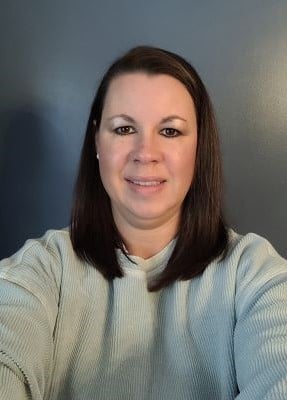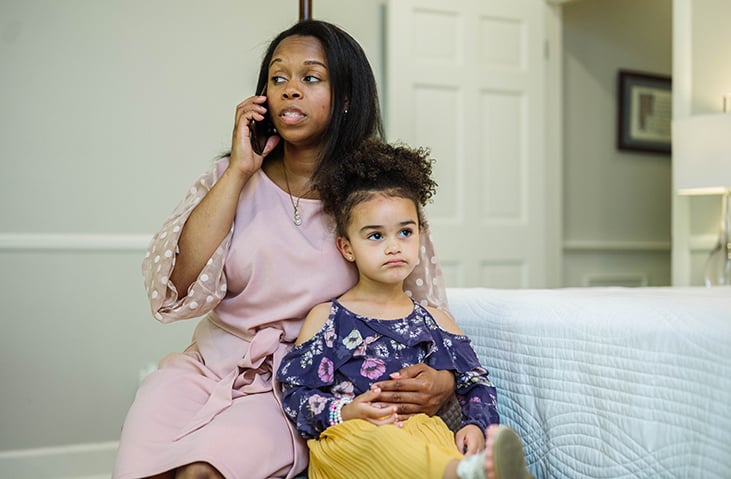

Nov 28 2023
Don’t be Afraid of Courageous Conversations


Summary
It’s not easy to talk about end-of-life issues with those we love, but these courageous conversations can make a tremendous difference for our families.
"In a culture that often teaches us to resist mortality and a health care system defined by interventionism, the seemingly simple act of having a conversation about dying can have a profound impact.
- What does death mean in my life?
- If I am faced with a terminal diagnosis, how would my values shape my end-of-life journey?
- How do I want my loved ones to engage with me toward the end of my life?
"It’s difficult to think about these questions but having these courageous conversations with ourselves, family, friends and doctors can mean the difference between having the type of death a patient wants – one that matches up with their values and desires – and one that doesn’t allow them to have a say in their own end of life.
- from the National Hospice and Palliative Care Organization
"We salute all the people who have initiated these 'Courageous Conversations':
- The individuals who have talked to their families about their wishes as they face life-limiting illnesses
- The health care professionals who have guided patients and families
- The advocates who have spoken up for patients’ end-of-life wishes
We want to help people facing terminal illness have the type of death they want and allow them to have a say in their own end of life.
Hospice emphasizes the management of pain and other symptoms including psychological, emotional, social and spiritual needs associated with terminal illness. It’s available to patients with a life-limiting illness whose life expectancy is measured in weeks or months, not years.
Hospice is available in a person's home and local nursing homes. Inpatient hospice can be provided at North Mississippi Medical Center-Tupelo Inpatient Hospice Unit or any of our North Mississippi Health Services hospitals.
Starting the conversation about end-of-life care earlier benefits patients and families.
- A 2007 research study showed patients on hospice live on average 29 days more than those not on hospice.
- While hospice care is being used more often, many families wished they had placed their loved one in the care of a provider sooner so their loved one could be more comfortable during their last days.
- 27.9% of hospice beneficiaries received care for seven days or less, which is considered too short a period for patients to fully benefit from the person-centered care available from hospice.
Hospice patients can keep their primary care provider, or the Hospice Medical Director can oversee their care with the Hospice nurse practitioner making home visits.
Hospice care is accessible. Medicare pays 100% of hospice care and includes:
- All care by all disciplines including nurses, social workers, aides and chaplains
- All supplies to care for a patient such as nutritional supplements, wound care supplies and gloves
- Durable medical equipment such as hospital bed, overbed table, oxygen and nebulizer
- Medications related to comfort for the terminal diagnosis including pain, nausea, sleep and anxiety. (Hospice care does not cover routine medications including those for high blood pressure, cholesterol, diabetes and vitamins.)
It’s important to talk to your family and your primary care giver about your wishes for end-of-life care. The free Conversations Before a Crisis booklet is a helpful tool to guide you.


Elizabeth Buse, LCSW
Elizabeth “Beth” L. Buse is a licensed certified social worker who joined North Mississippi Health Services Hospice in June 2003 as the Hospice Volunteer and Bereavement Coordinator before transitioning to the role of Hospice Medical Social Worker in 2005. She holds a bachelor’s degree in social work from the University of Mississippi and a master’s degree in social work from the University of Alabama. Beth provides education on hospice and end-of-life care, as well as assists with the Hospice Grief Support Group.
For more information on Hospice Care at NMHS, call (662) 377-3612 or 1-800-852-1610.

Subscribe to Our Newsletter
Like this content and want to get more? Sign up for True North, the health and wellness newsletter from North Mississippi Health Services!

Subscribe to Our Newsletter
Like this content and want to get more? Sign up for True North, the health and wellness newsletter from North Mississippi Health Services!

Nurse Link®
Not sure if you need Urgent Care or the ER? Call 1-800-882-6274 anytime to speak directly to a registered nurse and get immediate answers. Using computerized medical protocols, nurses direct callers to the most appropriate treatment. Our nurses are available 24 hours per day, seven days per week.